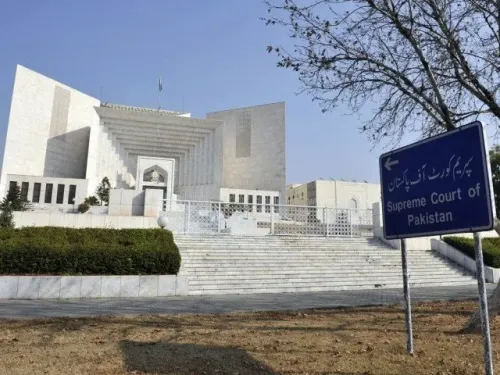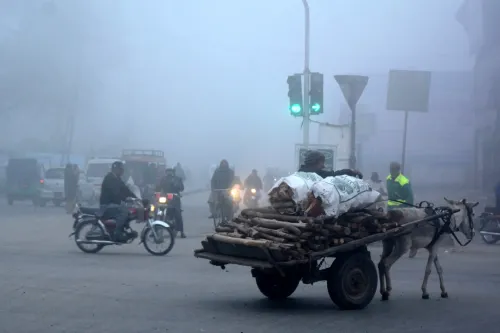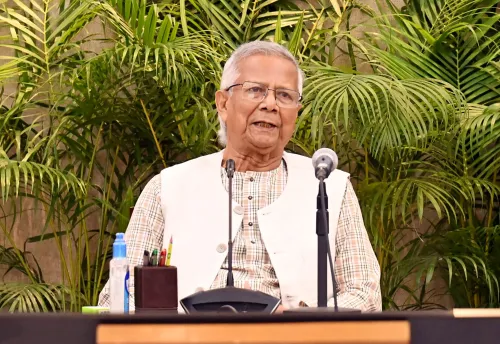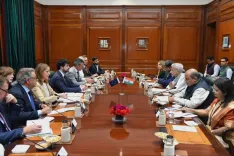Guterres Calls for Collaboration Between India and Pakistan on Terrorism Issues
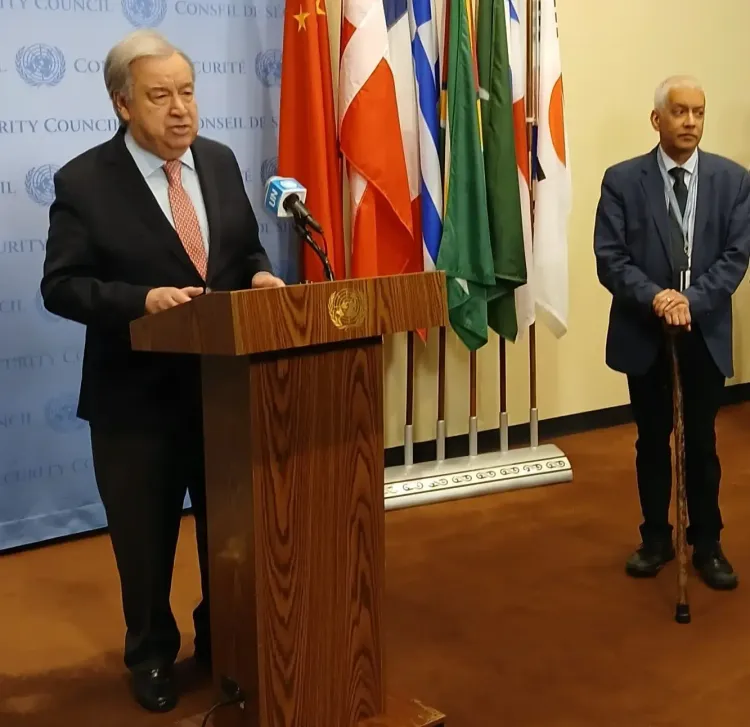
Synopsis
Key Takeaways
- Guterres urges collaboration between India and Pakistan.
- International terrorism concerns need joint efforts.
- Akram's statements hint at regional tensions.
- UNAMA's mandate extended for another year.
- Relationship with Taliban strained due to women's rights issues.
United Nations, March 18 (NationPress) UN Secretary-General Antonio Guterres has urged India and Pakistan to collaborate on addressing their shared concerns regarding international terrorism, as stated by his Deputy Spokesperson Farhan Haq.
“It is crucial for all nations, including India and Pakistan, to join forces in tackling any issues they face concerning international terrorism,” he remarked on Monday.
Haq's remarks were in response to a query from a Palestinian journalist who referenced Pakistan’s Permanent Representative Munir Akram and his indirect mention of a “principal adversary,” which was interpreted as a reference to India.
While addressing the Security Council after its decision to prolong the mandate of the UN Assistance Mission in Afghanistan (UNAMA), Akram refrained from naming the “adversary” when discussing the hijacking of the Jaffer Express, an act claimed by the Baloch Liberation Army.
Without specifically naming India or any other country, Akram stated, “We also have evidence that this attack was initiated and financed by our principal adversary, using its proxies in Afghanistan.”
Whether he was implicating India or Iran, which shares a border with Pakistan’s Balochistan Province, Akram tactfully avoided naming any nation to prevent it from exercising the right to reply, which could have exposed Pakistan’s own involvement in international terrorism.
However, he did mention Afghanistan as a connection to the hijacking incident.
Akram claimed, “During the attack, the terrorists were in direct communication with their 'handlers' in Afghanistan, from where the assault was orchestrated and directed.”
He asserted that these attacks were designed “to disrupt Pakistan’s partnership with China and the execution of the China-Pakistan Economic Corridor.”
In the hijacking incident at a mountain pass, Akram also attributed blame to the Majeed Brigade, resulting in the deaths of 25 passengers and 33 terrorists during the military rescue operation, according to Pakistani officials.
The Security Council unanimously voted to extend the UNAMA mandate for another year.
Established in 2002, UNAMA aims to assist the Afghan populace, yet its relationship with the Taliban is strained due to their restrictions on women's rights.

